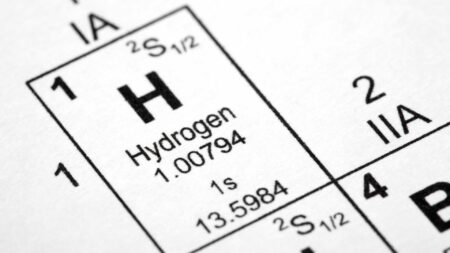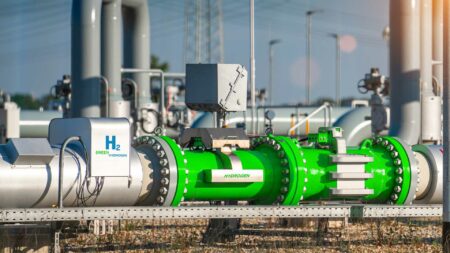CTG Brasil and SENAI (National Service for Industrial Learning) selected three projects from the 31 that applied to the Public Call – Green Hydrogen Strategic Mission, whose goal is to promote innovative solutions capable of generating business.
After technical analysis, the following proposals were chosen: Green Industrial District; Production and Storage of Solar Energy in H2 and Applications in Mobility; and Multiport DC-DC Converter and Intelligent IoT System for Energy Management.
The public call received applications from 13 states: Paraná, Santa Catarina, Ceará, Rio Grande do Norte, Amapá, Mato Grosso do Sul, Bahia, Rio Grande do Sul, Rio de Janeiro, Minas Gerais, Pernambuco, Espírito Santo, and São Paulo.
There were R$ 183.7 million in proposals, 10 times more than the amount foreseen in the public notice (R$ 18 million), and the themes focused mainly on the production of the so-called “fuel of the future”.
Now, the three selected projects are entering the identification and selection phase of potential international partners for the development of ideas and adjustments for the final contracting phase. The deadline for execution is up to 48 months from the signing of the contract.
“H2V (green hydrogen) is the future and Brazil is already seen as an important player in this market. The partnership with CTG Brasil is fundamental for the development of new technologies in renewable energy, promoting connection with researchers from Europe and China, accelerating the technological routes in the country,” said Rafael Lucchesi, SENAI’s national director.
According to Silvio Scucuglia, CTG Brasil’s Director of Strategy and Business Performance, the H2V, aligned with the growth strategy in renewable sources, will support the generation of sustainable businesses for segments such as mobility, industry and agriculture.
1st project
The Green Industrial District foresees the development of a commercial platform to map and commercialize green hydrogen. The transaction and production is certified through a pilot project, which guarantees the production of this technology from renewable sources by means of a registration seal of traceability and guarantee of origin.
According to the companies, the Port of Suape, in Pernambuco, has favorable logistical and industrial conditions to test such a program. Besides having a H2V production plant (under construction), it has a number of hydrogen consuming industries that present in their strategic direction the decarbonization of the activities. The proposal foresees the generation of income with the application of transaction fees.
2nd project
The Production and Storage of Solar Energy in H2 and Applications in Mobility will integrate a microgrid and a photovoltaic plant to the capacity to produce green hydrogen using two types of electrolyzers: polymeric membrane and traditional alkaline.
Such generated energy will be stored gravitationally, in lithium-ion batteries and as H2V in pressurized tanks and can be used directly or applied as a generation option using fuel cells using hydrogen.
The proposal foresees an analysis among the storage systems; a study to establish the technical basis for the implementation of hydrogen supply corridors along the Brazilian highways; and an evaluation of electrolyzer technical solutions (alkaline and polymeric membrane) to define the best adaptation to the power variability of the renewable sources.
3rd project
The Multiport DC-DC Converter and Intelligent IoT Energy Management System aims to develop a product to remove electricity conversion steps, reduce the cost of green hydrogen production, and increase system efficiency and design.
The project provides an IoT (Internet of Things) control and communication module integrated with artificial intelligence algorithms and energy management system to optimize the use of electricity generating sources.
About the Public Call
The Public Call “Green Hydrogen Strategic Mission” was launched in October 2021, during the inauguration of CTG Brasil’s Innovation Habitat at the Innovation and Technology Hub of SENAI-RN, in Natal. The company was the first in the energy sector to install an innovation office in the space.








